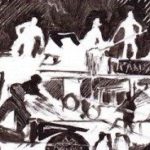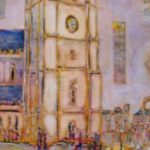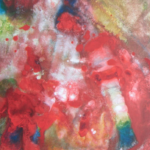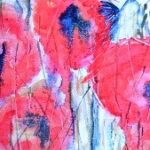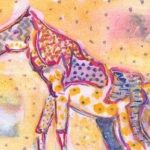Slippery Shylock
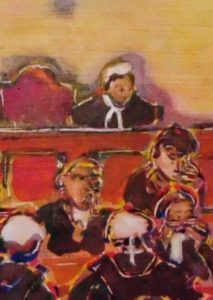
Whether you’re a murderer, a saint, a drug addict, a sports fanatic or an everyday Joe the one thing you have in common with everybody else in the world is that you live according to your value system. We begin forming it from the day we are born and no matter how disfigured it becomes we retain a limpet like connection to our moral principles throughout our lives.
As a child I experienced a lot of confusion around adults. I could never understand whether they were coming or going. Young people have a sincere attitude toward life and interact with the world from a place of open trust and truth. Adults, particularly most men, are not like that. They have agendas and sometimes are secretive, judgmental and abusive in the extreme. At least this was my experience as a small boy.
Through interaction with other people in the world children gradually develop a more cautious approach. Over time they begin to become skeptical of their surroundings. They develop doubts about the people and situations that they meet. This gradually leads to self-doubt. These doubts slowly manifest into multi-dimensional fears that eventually activate into illness at various levels.
As we grow older, our view of life gradually changes. We take on a different set of values and become influenced by people and circumstances. Eventually, we build a rock solid value system based on our physical interpretation of the world. As a result we lose all the initial, innate values we took for granted as a child. This seems the pattern for most people and it’s difficult to break that pattern. Indeed, at every turn, this way promotes a perfectly normal and natural life. However, there is nothing normal or natural about it. In fact it’s far from natural.
Young people are inclusive, accepting and creative. But over a period of about ten to fifteen years, they develop into separating, judgmental and destructive adults.What happens during this period that alters the structure of our lives so completely? Why should this dramatic alteration be so acceptable in older people and not in children? What is it that kids innately have that’s alien to almost every matured individual?
Slowly but surely a young person’s attitude to life shifts. Adults and circumstances have a direct effect on it. Now, for the first time, doubt has a place in the child’s world. This is his and her undoing, for up to now there was absolute clarity and certainty about invincibility. Now there’s a new player, a slow seeping realization heretofore never encountered and this throws their confidence for six.
Now there’s a chink in the armor, a little flea of a thing that if left unchecked will eventually ravage the young person’s innocence. It will turn him or her into a Shylock far more slippery than the Shakespearean version. Little people begin to hide their true feelings as they gradually discover that the world is a place where truth is unacceptable. Learned at a very early age it’s reinforced in almost all interactions. Encounters with the adult world make it difficult to work out what’s true any more and what’s honest. And so, honesty becomes genuine and truth takes a back seat. The manifesting of truth is knowledge but when we alter the truth to honesty we likewise alter knowledge and in its place we put intelligence and information and call them knowledge.
A similar thing happens to the activator of truth, wisdom. When we alter the truth and replace it with honesty we alter good sense and discernment. In their place we substitute judgement and pontificating and call them wisdom. This is all very confusing for most children who never come to full grips with the changeover. Tragically, they eventually become shaped into the mould. It’s a very convincing pattern.
I remember bringing up the subject of wisdom with a man who, in his pontificating, insisted that the last thing he needed to learn was wisdom and that he was old enough to know all about it. However, I realized that he hadn’t displayed a molecule of understanding during the whole conversation. Wisdom doesn’t come with age. Indeed, I know several children who own more wisdom than their grandparents.
When we downgrade truth, this has a devastating effect on the innate make up of the child. The adult self is a poor reflection of the truthful, knowing and wise being he or she once was. This is all because we allow the invisible interloper, doubt, into our lives. This intruder, who pulsates through society unnoticed is encouraged by every system and institution that uses subtle control and double standards as its tools.
Our judicial systems, banking systems, religious organizations, insurance companies, many businesses, educational systems, health services, governments, etc. have a vested interest in making sure that this interloper remains firmly in place. It’s through this sleeping partner to fear that we stay stuck in our ways and make little progress to our advancement as a species. We’re constantly hampered by its presence in our lives. This highwayman robs us of our integrity and is responsible for almost every fault and failure in the nature of humanity. Doubt is without doubt the biggest contributor to man’s demise and it has come time to banish it forever along with it’s double act, fear.
